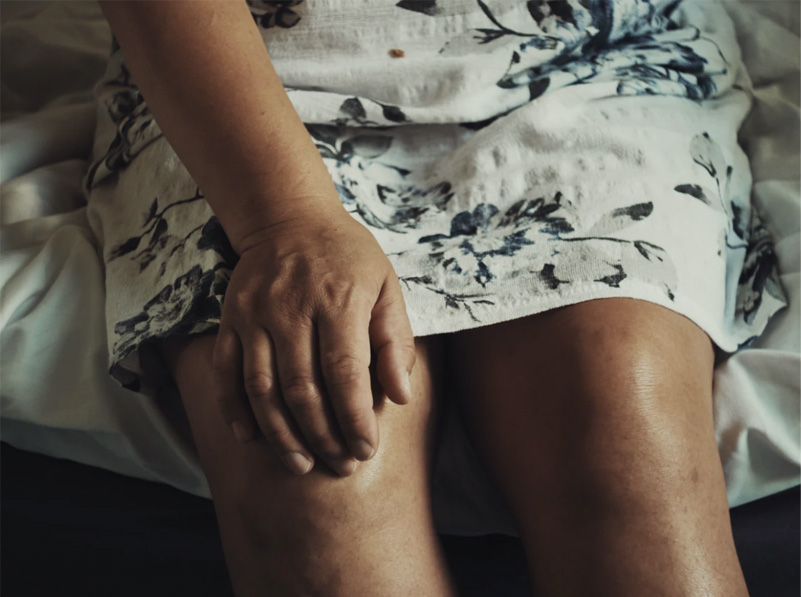
What is a Knee Doctor Ft. Lauderdale?
A knee doctor Ft. Lauderdale is an orthopedic doctor or orthopedic surgeon who specializes in treating injuries and chronic conditions affecting the knee. You might need to make an appointment directly, or you might start at your primary care physician’s office and receive a referral.
Knee doctors receive specialized training to treat pain and injury to the joint, ligaments, cartilage, and nerves surrounding the knee. They are experts in evaluating the cause and creating the best treatment plan for the numerous issues that afflict this joint.
When is it Time to See the Knee Doctor?
Knee pain is the biggest indicator for a visit to the doctor. Pain might be sharp and localized to one area or it might be dull and throbbing and spread throughout the entire knee joint. Pain levels vary greatly.
Subtle knee pain that has come on gradually and minor knee injuries are usually not cause for concern. These are common and can usually be managed with rest, ice, compression, elevation, and NSAIDs. The pain will likely resolve on its own. If it does not resolve, or greatly worsens, then you should seek medical attention.
You should always make an appointment with a doctor if you experience the following:
- Pain that does not resolve and interferes with sleep
- Extreme swelling
- Warmth and tenderness around the joint
- Fever
- Inability to participate in usual activities
- Pain caused by a jarring and forceful impact
You should visit an emergency room or urgent care facility if an injury caused the following:
- Popping noise
- Sudden swelling
- Extreme pain
- Deformity
- Inability to put weight on your knee
What are the Most Common Knee Injuries?
Knee injuries commonly occur while playing sports or as the result of a car accident. Some people injure their knees just going about their daily business. The most common knee injuries are:
- Fractures
Fractures occur when the patella (kneecap,) which protects the knee from damage, is forcefully struck. This could happen during a fall or while participating in a particularly aggressive sport. This injury usually involves immobilization. Particularly severe fractures might require surgery.
- Sprains
Sprains involve the stretching or tearing of a ligament. Ligaments stabilize the knee, and they can become injured when the knee suddenly twists or bends in an unnatural way. Sprains require rest and a compression bandage.
- Dislocations
Knee dislocations are generally caused by trauma but can also be a congenital condition. This occurs when the bones of the knee are out of place. Once the bones are returned to their natural position, this injury is treated with rest, ice, and pain relievers.
- MCL and ACL tears
These ligament tears are common injuries for athletes who do a lot of jumping and pivoting. Treatment includes rest, ice, elevation, compression, physical therapy, and sometimes surgery.
What are the Most Common Chronic Knee Conditions?
- Arthritis
Arthritis is an inflammation of the joint, and it causes pain, stiffness, and swelling. There are different types of arthritis. It can be caused by wear and tear, an autoimmune disorder, or injury. Depending on the type of arthritis, pain relief can be achieved with medication, weight loss, injectable steroids, or surgery.
- Bursitis
Bursitis is an inflammation of fluid filled sacs that cushion the knee. It is usually the result of frequent kneeling on hard surfaces or overuse, but it can also be caused by an injury. Bursitis can become infected, so you should see a doctor if it is accompanied by a fever.
- Patellofemoral Pain Syndrome
This syndrome involves pain around the kneecap. It is often referred to as “runner’s or jumper’s knee” because it is associated with athletes. It is often caused by overtraining, so changes in activity can provide relief.
- Gout
Gout is a form of arthritis that usually affects the big toe but is also commonly found in the knee. It is caused by high levels of uric acid that produces painful crystals. The pain can be sudden and usually accompanied by swelling and redness.
What Should You Expect at Your Appointment?
Your knee doctor Ft. Lauderdale will give you a physical examination and use imaging tests to diagnose the cause of your knee pain and the level of damage. This enables the doctor to design the best treatment plan for your issue.
The physical exam includes a visual evaluation to check for redness, swelling, and deformity. The doctor will also palpate the knee to check for warmth or tenderness. Your ligaments will be tested, and the doctor will check your range of motion. It is important for the knee doctor Ft. Lauderdale to assess not only how your knee moves, but also whether any odd sounds are produced upon movement.
Imaging tests might include an x-ray, computerized tomography (CT) scan, ultrasound, or magnetic resonance imaging (MRI). These tests can show fractures to the bone, degenerative diseases, gout, and injuries to ligaments, tendons, cartilage, and muscle.
You might also have lab tests to check for issues related to infection or arthrocentesis which involves removal of fluid to check for arthritis.
When deciding if the time has come to see a knee doctor Ft. Lauderdale, you should always err on the side of caution. Some conditions can be worsened if intervention is not timely. A weakened or injured knee can put you at risk for further injury, so it is always best to seek medical advice when in doubt. Contact OSI today for best in class knee treatment.
